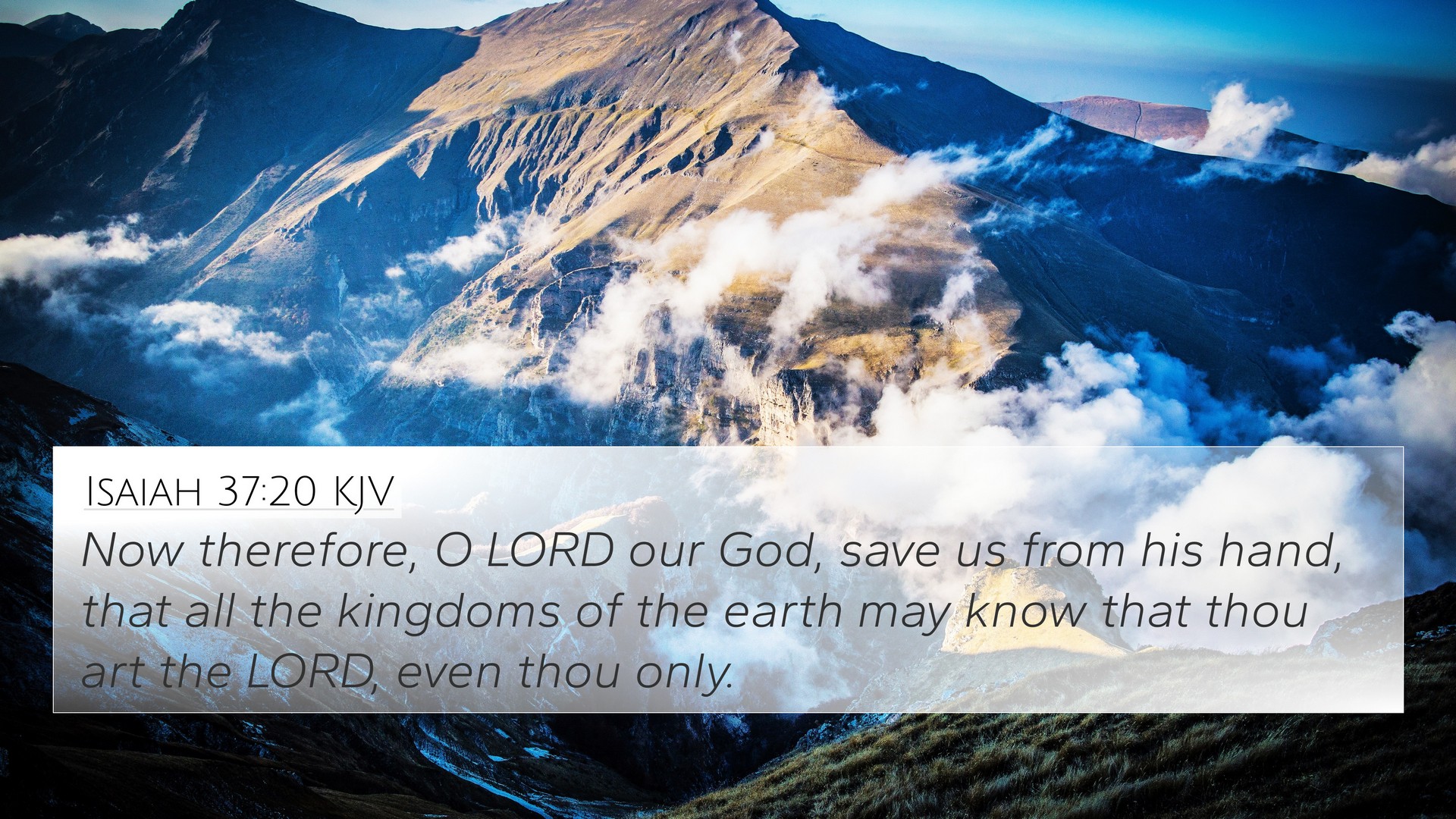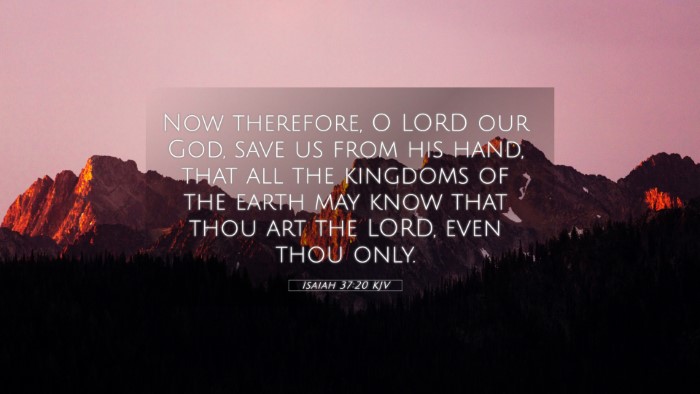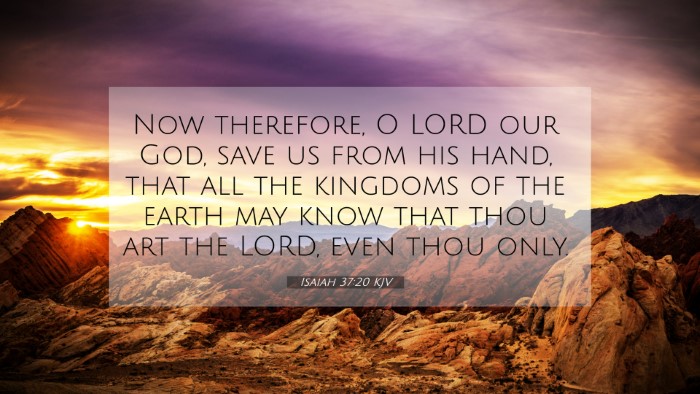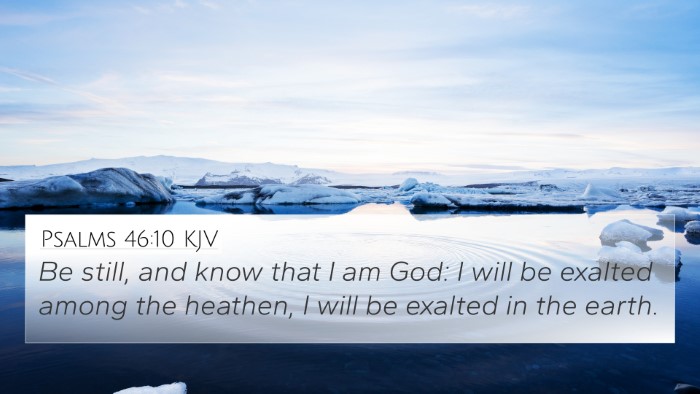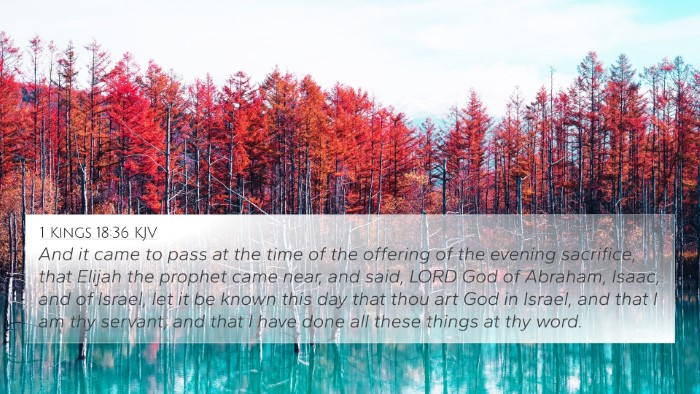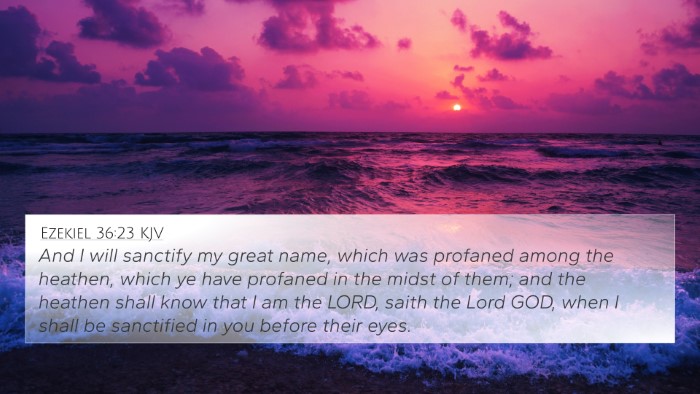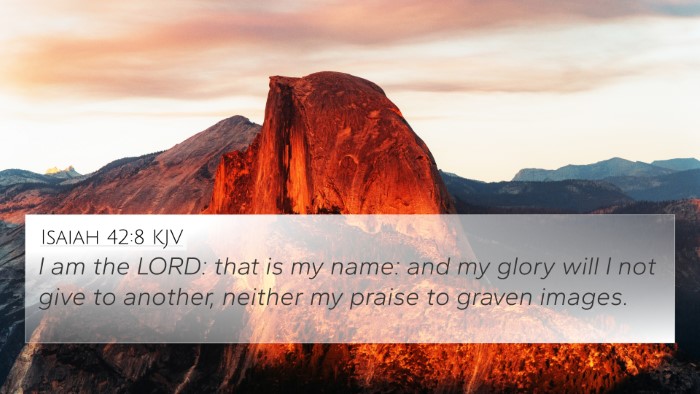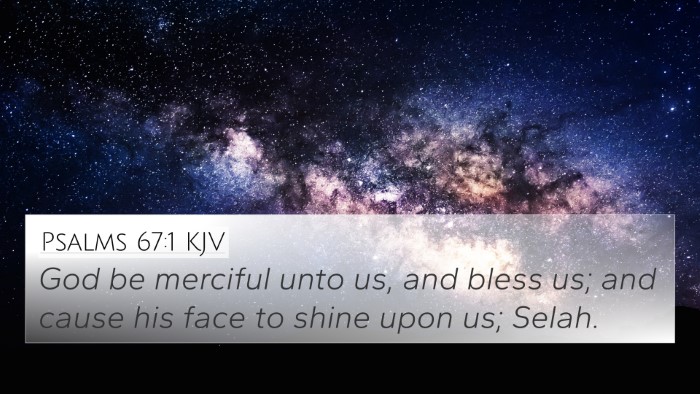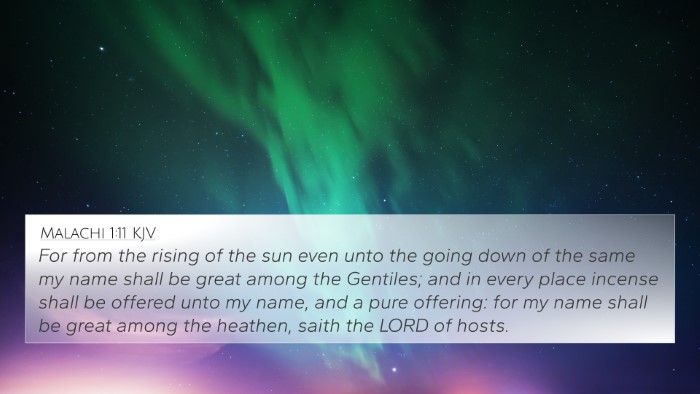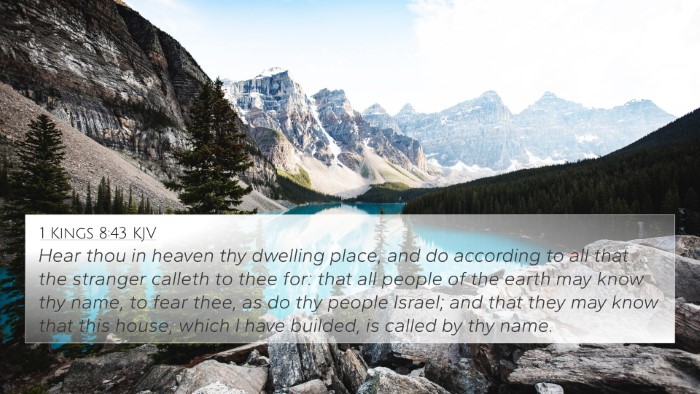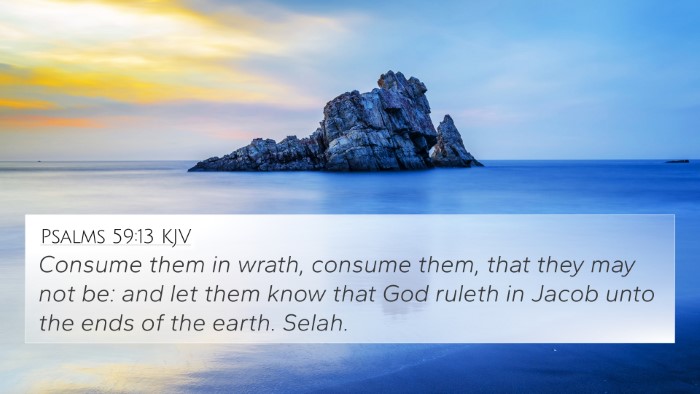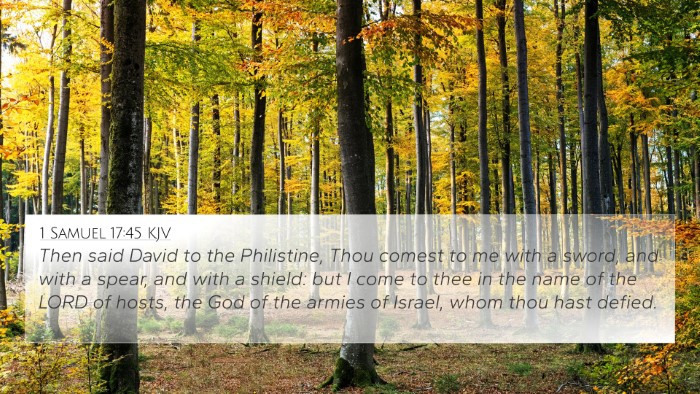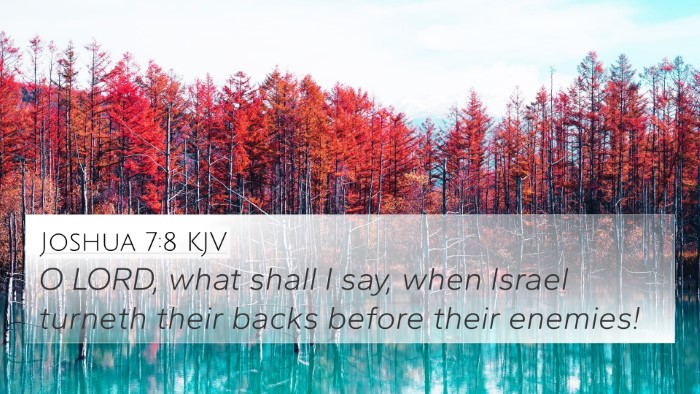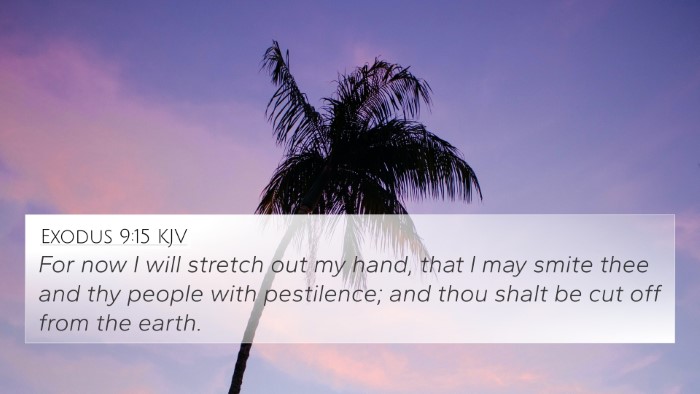Understanding Isaiah 37:20
Isaiah 37:20 states: "Now, O LORD our God, save us from his hand, that all the kingdoms of the earth may know that you alone are the LORD." This verse is a poignant reminder of the sovereignty of God over all nations and His power to deliver His people from oppression.
Summary of Key Themes
- Divine Sovereignty: The verse conveys the idea that God is the ultimate ruler, and His authority extends over all the kingdoms of the earth.
- Prayer for Deliverance: It is a heartfelt prayer, acknowledging the need for God's intervention against enemies.
- Witness to the Nations: The desire for all nations to know God's supremacy is a central theme, emphasizing His glory and power.
Commentary Insights
The insights gained from public domain commentaries like those by Matthew Henry, Albert Barnes, and Adam Clarke offer a deeper understanding of this verse.
Matthew Henry's Commentary
Matthew Henry emphasizes the significance of recognizing God's power in prayer. He interprets this verse as a proclamation of faith, reflecting the confidence of God's people in His ability to save. According to Henry, the plea for deliverance should stem from a desire to glorify God, and it reflects a deep awareness of God's past interventions in similar situations.
Albert Barnes' Notes
Albert Barnes frames this verse within the context of Hezekiah's prayerful response to the threat posed by Sennacherib. Barnes highlights the importance of acknowledging God’s uniqueness, as He alone has the power to save. He also underlines the intended outcome of the prayer — that all kingdoms of the earth may recognize Lord’s supreme authority. This indicates that God's deliverance is not only for His people but also serves as a testimony to the surrounding nations.
Adam Clarke's Commentary
Adam Clarke provides a detailed analysis, linking this verse to the historical context of the Assyrian threat. Clarke points out that Hezekiah's awareness of the futility of relying on human alliances pushes him to earnestly seek divine help. He reiterates that the prayer reflects an understanding of God's ultimate purpose to make Himself known among the nations. Clarke also comments on the theological implications of this verse, where recognizing God's sovereignty is paramount.
Bible Verse Cross-References
This verse can be connected to several other scripture passages that echo similar themes of prayer, divine deliverance, and recognition of God’s sovereignty:
- Psalm 46:1: "God is our refuge and strength, an ever-present help in trouble."
- Psalm 86:8-10: "Among the gods there is none like you, O Lord; no deeds can compare with yours." This emphasizes God's unique status.
- Isaiah 37:16: Hezekiah's acknowledgment of God’s power as the creator reinforces the theme of divine sovereignty.
- Jeremiah 32:27: God declares, "I am the Lord, the God of all mankind. Is anything too hard for me?"
- Isaiah 45:5-6: "I am the Lord, and there is no other; apart from me there is no God." This highlights God’s exclusivity as the Savior.
- 1 Chronicles 16:23-24: A call to all nations to acknowledge the glory of God, reflecting the evangelistic purpose in Isaiah’s prayer.
- Revelation 15:4: "Who will not fear you, O Lord, and bring glory to your name? For you alone are holy." This connects to the theme of God’s universal recognition.
Exploring Thematic Connections
The thematic connections in Isaiah 37:20 can be explored through various angles:
- Deliverance: Looking at other prayers for deliverance like Exodus 14:13-14, where Moses reassured Israel during their escape from Egypt.
- Power of Prayer: The New Testament reference to powerful prayer in James 5:16 enhances the understanding of prayer's effectiveness.
- God’s Glory: Related themes in John 17:1-2, where Jesus asks for God’s glory to be revealed in His mission.
Conclusion
Isaiah 37:20 not only reflects a profound plea for deliverance but also serves as a reminder of God's sovereignty and the universal acknowledgment of His greatness. Through cross-referencing this verse with others, we achieve a deeper comprehension of God’s enduring power and the purpose of prayer in recognizing and affirming His authority. This interconnectedness between scriptures enriches our understanding, inspiring us to seek divine guidance and witness God's work among the nations.
Using Bible Cross-References for Deeper Understanding
For those looking to explore more about using Bible cross-references as a study tool:
- Tools for Bible Cross-Referencing: Utilizing concordances and cross-reference guides can significantly enhance personal study.
- Understanding Connections: Identifying links across both Old and New Testaments encourages a holistic understanding of themes throughout scripture.
- Comparative Analysis: A comparative approach, especially in the study of the Gospels or Pauline epistles, offers rich insights into overarching Biblical narratives.
